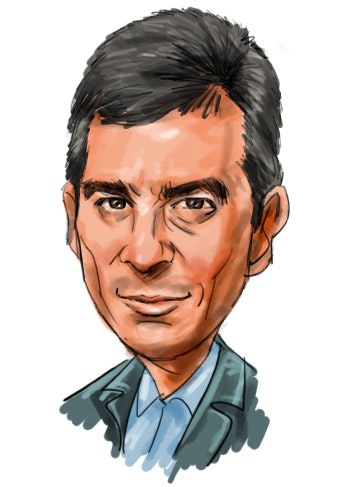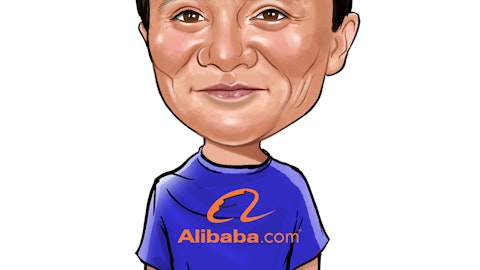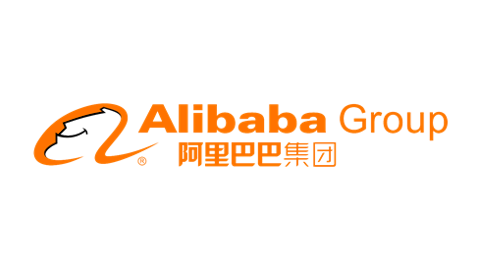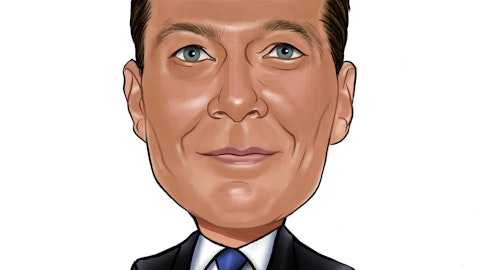Hedge fund managers have a hard time delivering market-beating returns to their investors. The last seven years have proven testament to that, with the average return of hedge funds underperforming the market every single year since 2008. This of course begs the question, “why bother tracking and worrying about what hedge funds are doing; shouldn’t they and their ill-fated picks be avoided like the plague?” Well, yes and no. And by yes, we mean do avoid their large-cap picks, and by no, don’t avoid their small-cap picks.
Why is this? Well, our historical analysis of more than a decade’s worth of 13F filings from many of the top hedge funds in the world shows that the majority of their money gets funneled into large cap stocks that can’t generate enough alpha to spoil investors with strong returns; the money is simply pushed into large-cap sources to use it up and collect fees from it.
This is exemplified by the returns of Dan Loeb’s Third Point since 1999. By analyzing the fund’s 13F filings between 1999 and 2012, we found that its top five large-cap (companies with a market cap of more than $20 billion) stock picks, equally weighted, returned just 0.05% monthly during this timeframe, drastically underperforming the returns of the S&P 500 (0.35%). The news is even worse when we limit the data to between the years 2008 through 2012, during which those top large-cap picks actually lost 0.05% per month, versus the S&P 500 growth of 0.29%.

On the other hand, fund managers are extremely adept at generating returns from their top small-cap stock picks; in fact their top 15 picks, collectively, have outperformed the market annually by a rate in the double digits! This is why Loeb’s fund has generated average annualized returns of 17.3% since its inception in late 1996, despite the vast underperformance of its large-cap picks during much of that time. Funds like Third Point simply don’t have enough of their capital invested in small-caps to be able to offset the marginal returns from large-caps.
Needless to say, historical data tells us that Loeb’s large-cap picks should probably be avoided. With that in mind, let’s take a look at five of Loeb’s top large-cap stock picks at the end of 2014.
Alibaba Group Holding Ltd (NYSE:BABA), the $213 billion Chinese e-commerce giant tops our list, with Loeb owning 10 million shares at the end of 2014 worth $1.04 billion at the time, after increasing his stake by 2.80 million shares during the fourth quarter. Let’s stress “at the time”, as Alibaba has plunged over 17% this year, wiping out more than $170 million of Loeb’s stake.
Alibaba has made several moves in recent days to further its global expansion in e-commerce and entertainment, acquiring an 8.8% stake in Enlight Media, a Chinese movie and television production company. The company also opened its first U.S cloud center this week, in Silicon Valley. These moves however are unlikely to have a short term positive effect on the company’s growth, which investors will be paying specific attention to when Alibaba releases its next quarterly results. For this reason, many analysts are bearish on Alibaba short term, with a more bullish long-term outlook.
Actavis plc (NYSE:ACT) is next, with Loeb owning 3.45 million shares worth $693.68 million at the close of 2014, a 20% increase from the previous quarter. The $83 billion pharmaceutical company, one of the largest generic drug makers in the world, just issued one of the largest corporate-bond offerings in history at $21 billion, as it gathers cash to pay for its $66 billion purchase of botox maker Allergan, Inc. (NYSE:AGN), whose name it will adopt once the companies merge. Actavis has been a successful investment for Loeb, who first entered the position in the first quarter of 2014, with shares are up nearly 50% since the end of that quarter.

eBay Inc (NASDAQ:EBAY) is next, which Loeb first entered in the third quarter of 2014, with a 4.5 million share stake. The timing was right, as $70 billion e-commerce company eBay announced its intentions to spin off its PayPal division right at the end of that quarter, after repeated pressure from activist Carl Icahn. Shares spiked, though they would dip again by the middle of October when Apple launched Apple Pay, a dangerous new competitor to PayPal. Loeb said in an investor letter at the time that the dip marked “an interesting entry point” for investors. Loeb doubtlessly took advantage himself, having more than doubled his previous stake to 10.0 million shares worth $254.84 million by the end of the year. Shares of eBay have since rebounded strongly, up 23.39% since mid-October.
Phillips 66 (NYSE:PSX) is a new position Loeb initiated during the fourth quarter, with 5 million shares valued at $358.50 million. The $42 billion midstream, chemicals, and refining company has endured the oil price crisis much better than the majority of its peers, up 2.85% since the start of 2014, while the sector as a whole was battered, with energy stocks on the S&P 500 suffering a collective 10% loss in 2014. Phillips 66 now represents about half of Loeb’s entire investment in energy equities, showing his particular trust in this company, which sports a high growth outlook in 2015, and a very reasonable price to earnings ratio of 9.
Citigroup Inc (NYSE:C) brings up the rear of this list, also checking in as a new position for Loeb with 5.0 million shares valued at $270.55 million at year’s end. It was an interesting time to buy into the $163 billion financial services company, and may have indicated Loeb’s confidence that the company would pass the important Federal Reserve stress test that it failed last year, which prevented it from increasing dividends or buying back shares. Citigroup did indeed pass the test this week, and also announced the sale of its profitable U.S sub-prime lending business OneMain Financial to Springleaf Holdings Inc (NYSE:LEAF), which sent that company’s shares up over 30% and Citigroup’s down slightly, as investors scratched their heads at the decision, though analysts believe it’s a positive step towards focusing Citi’s efforts on its core business.
Disclosure: None





